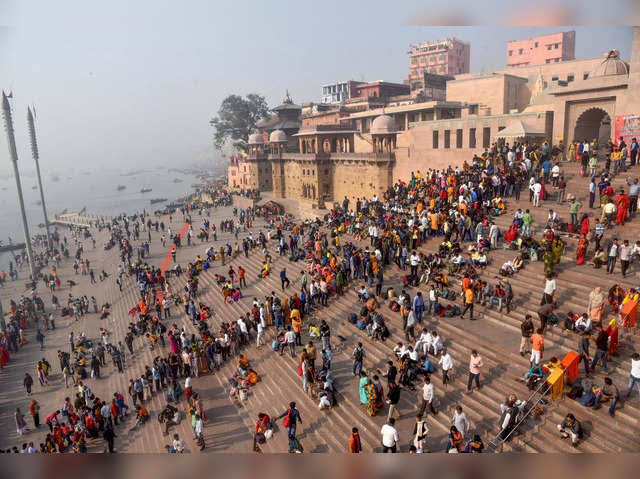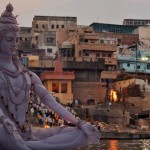Kashi Vishwanath Temple, nestled in the ancient city of Varanasi, is one of the most revered and significant temples in India. This sacred sanctuary is a pivotal site for Hindu worshippers, attracting millions of devotees and pilgrims from across the globe. The temple is uniquely dedicated to the triune of major gods in Hinduism: Brahma, Vishnu, and Shiva. Each deity holds a crucial role in the cosmic functions of creation, preservation, and destruction.

Brahma: The Creator God
Brahma, known as the creator god, is one of the principal deities worshipped at Kashi Vishwanath. According to Hindu mythology, Brahma is responsible for the creation of the universe and all living beings. His role as the creator is foundational, as he brings forth life and initiates the cosmic cycle. Although Brahma is less commonly worshipped compared to Vishnu and Shiva, his presence in Kashi Vishwanath symbolizes the inception of existence and the continuous process of creation that sustains the universe.
Vishnu: The Preserver God
Vishnu, the preserver god, holds a central place in Hindu belief and at Kashi Vishwanath Temple. Vishnu is revered for his role in maintaining the order and harmony of the universe. He is often depicted in various avatars, such as Rama and Krishna, each incarnation representing his efforts to restore balance whenever the world is threatened by chaos and evil. Devotees believe that Vishnu's divine intervention ensures the sustenance and stability of life, making him an essential deity for those seeking protection and guidance.
Shiva: The Destroyer and Transformer God
Shiva, commonly referred to as the destroyer god, completes the triad of major deities at Kashi Vishwanath. However, Shiva's role extends beyond mere destruction; he is also the transformer and a vital force for renewal and rebirth. In Hindu philosophy, destruction is not seen as purely negative but as a necessary step for transformation and new beginnings. Shiva's power to destroy is believed to purify and liberate, allowing for the dissolution of ignorance, desires, and negative qualities.
Shiva's Dual Role: Destruction and Creation
Shiva's dual role is deeply intertwined with the concept of reincarnation in Hinduism. As the destroyer, he facilitates the end of cycles, making way for new life and opportunities for spiritual growth. This destruction occurs not only on a physical level but also within the mind and soul. Shiva's ability to annihilate desires and harmful habits enables individuals to transcend their current state and aspire to higher planes of existence. This transformative power is crucial for personal development and spiritual enlightenment, making Shiva a central figure for those seeking to improve their lives and attain moksha, or liberation.
The Significance of Kashi Vishwanath Temple
Kashi Vishwanath Temple, dedicated to Lord Shiva, is considered one of the twelve Jyotirlingas, which are the most sacred abodes of Shiva. The temple's location in Varanasi, a city believed to be older than history itself, adds to its spiritual significance. Varanasi is described as the eternal city where devotees come to attain salvation. Bathing in the holy waters of the Ganges River and offering prayers at Kashi Vishwanath is believed to cleanse one of sins and facilitate the journey towards liberation.

The Spiritual Experience
Visiting Kashi Vishwanath offers a profound spiritual experience. The temple's intricate architecture, the rhythmic chants of Vedic hymns, and the intoxicating fragrance of incense create an atmosphere charged with divine energy. Pilgrims partake in various rituals and ceremonies, each designed to honor the triune deities and seek their blessings. The convergence of Brahma, Vishnu, and Shiva at Kashi Vishwanath exemplifies the holistic approach of Hindu worship, encompassing the full spectrum of cosmic functions—creation, preservation, and destruction.
Conclusion
Kashi Vishwanath stands as a testament to the rich spiritual heritage of Hinduism. The temple's dedication to the triune deities—Brahma, Vishnu, and Shiva—reflects the profound belief in the interconnectedness of creation, preservation, and transformation. For devotees, a visit to Kashi Vishwanath is not just a pilgrimage but a journey towards spiritual awakening and self-realization. The temple continues to inspire and attract worshippers, offering a sacred space where the divine presence of Brahma, Vishnu, and Shiva can be felt and revered in all its glory.











